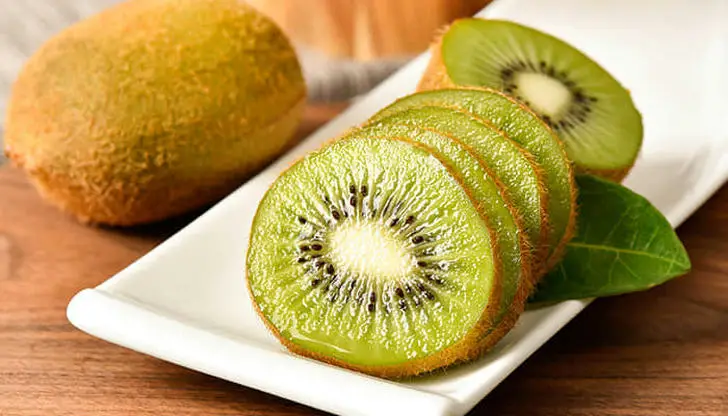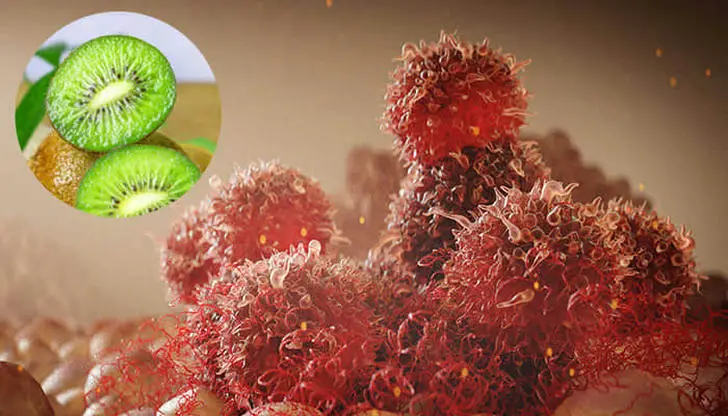6 Nutritional Values of Kiwi
Advertisement

The kiwi has green flesh and a distinctive brown skin. The sweet taste is like a summer smoothie, with flavors of banana, blackberry, and tropical melon. Because of the high nutrient density of kiwi, it has the reputation of ‘king of fruits’.
Nutrition

In terms of vitamin C, the United States Department of Agriculture data shows that the same amount of kiwifruit contains 3 times the vitamin C of lemons, 3.5 times that of citrus, and about 12 times that of apples. 100g kiwi contains:
• Vitamin C: 93 mg
• Calories: 61
• Fat: 0.52g
• Protein: 1.14g
• Carbohydrates: 14.66g
Benefits
1.It may help prevent cancer

Kiwi is rich in vitamin C, lutein, and beta carotene, which can enhance antioxidant capacity, reduce DNA damage, and reduce the probability of cancer. Vitamin C can also block the carcinogenic factor ‘nitrosamine’ produced by eating processed foods, and has a preventive effect on various cancers such as gastric cancer, liver cancer, and colorectal cancer.
2.It helps promote digestion

After people eat kiwi, the digestion ability of pepsin will increase, which may also speed up the absorption of protein in the small intestine, so that the body's overall level of protein utilization can be improved. A special enzyme naturally produced in kiwi helps the body to absorb protein faster.
3.It may help prevent cardiovascular disease

Kiwi is rich in arginine, which can effectively improve blood flow, prevent the formation of blood clots, and has a special effect on reducing the incidence of cardiovascular diseases such as coronary heart disease, hypertension, myocardial infarction, and arteriosclerosis.
It also contains a large amount of natural sugar alcohol substances inositol, which can effectively regulate sugar metabolism, regulate the conduction effect of hormones and nerves in cells, and has a unique effect on preventing diabetes and depression.
4.It helps protect eyesight

The lutein contained in kiwi can improve various eye diseases, including macular degeneration. Lutein protects the eyes by filtering short-wave UV rays, and its accumulation on retinal mold can prevent spots from worsening and lead to permanent blindness.
5.It helps to lose weight

The rich vitamin C in kiwi can help the body to synthesize collagen, promote metabolism, and resist skin aging; the vitamin E it is rich in is also a powerful antioxidant. Kiwi fruit is low in calories, but rich in dietary fiber, which can increase satiety and help lose weight.
6.It helps to stay optimistic

For busy people, if you can eat two kiwis every night, it will help you sleep well. The antioxidant vitamin C in kiwi can help improve sleep and effectively treat some sleep-related diseases. The serotonin can also enhance memory and relieve depression. Also kiwi has a well-known effect: removing spots and anti-aging, and it can replenish the water needed by the body in winter.
Tips
Although kiwi is good, it should be eaten in moderation. The following four situations must be noted:
• Patients with kidney disease should avoid eating kiwi if they need to limit potassium, because the content of potassium in kiwi is high.
• People taking anticoagulant drugs, if they eat kiwi improperly, it will affect blood coagulation and affect the efficacy of the drug.
• Chinese medicine believes that kiwi is cold, and people with spleen and stomach deficiency should eat less.
• Women who are menstruating and confinement should avoid taking it.



